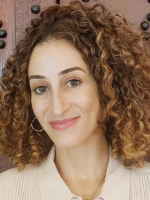DUBAI — There was no final communique, press conference or details of when the meeting started or ended, in contrast to standard protocol when Arab leaders meet. Instead, a single photo was released on Friday, showing Arab leaders standing shoulder-to-shoulder in Saudi Arabia for what the kingdom called an "informal brotherly gathering", though with lofty discussion on Gaza's future.
This unusual level of secrecy around the high-level meeting indicates how sensitive these talks are for Saudi Arabia's crown prince, leaders from other Gulf states, Egypt's president and Jordan's king, who all attended.
While their only photo from the gathering shows them standing together, what's at stake is whether they can reach a consensus and unite around an Egyptian plan for Gaza that's starkly different to the one laid out by President Donald Trump in recent weeks.
Arab states are scrambling to address Trump's vision for Gaza, in which he says the U.S. should take ownership of the territory, displace all its 2 million Palestinians permanently to countries like Egypt and Jordan, and turn this sliver of beachfront territory into a real estate project.
The plan has strained the basic outlines of an already shaky ceasefire in Gaza following more than 15 months of war and Israeli airstrikes that have decimated the territory and killed at least 48,000 people, most of them women and children, according to the Palestinian health ministry. The war erupted when Hamas militants attacked Israel, killing around 1,200 people there and taking hostages in October 2023.
Arab countries, keen to maintain warm ties with Trump as president, have rejected the displacement of Palestinians from Gaza while not directly condemning Trump's idea. Egypt and Jordan view the plan as destabilizing to their security and the region. The UAE, which has close ties with Israel and opposes Hamas in Gaza, has emphasized that reconstruction of Gaza must be linked to the establishment of a Palestinian state.
Hamas and many Palestinians have called Trump's plan "ethnic cleansing," but Israel's prime minister has embraced it as a remarkable idea that encourages what he says is "voluntary migration." Israel's military has been instructed to prepare to facilitate the plan.
It's not only Israeli backing that's needed, though. Any post-war reconstruction of Gaza will also require Arab support to help shoulder the cost of rebuilding and the possible deployment of troops for security.
Arab leaders review Egypt's plan
While Egypt's plan has not been made public, the state-run Al-Ahram newspaper in Cairo reported it includes carving out "safe areas" for Palestinians in Gaza to reside in as Egyptian and international companies remove rubble and rebuild infrastructure.
The Associated Press reports the multiphase plan includes Hamas giving up governance of Gaza, as the group told NPR they are willing to do, though Hamas insist on the right to maintain arms against Israel. The AP reports the Egyptian plan also calls for restructuring Gaza's police force.
It's unclear, however, if the plan goes far enough in addressing concerns of Gulf Arab states, which are unlikely to invest billions into rebuilding Gaza so long as the specter of violence looms indefinitely and Israeli airstrikes remain a threat.
Meanwhile, the Palestinian Authority in the occupied-West Bank says it has its own vision for Gaza that will be presented in early March at a wider Arab League summit in Cairo.
Gaza's uncertain future
There's a little over a week left in the current ceasefire agreement between Israel and Hamas. Negotiations have not yet begun for the more complex second phase of the deal that includes full Israeli troop withdrawal from Gaza, the release of all remaining Israeli hostages and a permanent end to the war. Far-right ministers in Israel's government want a return to war, saying Hamas has not been eliminated.
An assessment this week by the U.N., World Bank and European Union says Gaza and the occupied-West Bank need at least $53 billion for reconstruction and recovery over the next decade. The U.N. says 95% of Gaza's schools have been damaged or destroyed, as have more than 90% of homes and most hospitals, roads, water systems and agricultural land. Another U.N. estimate says more specifically that nearly 300,000 homes have been completely destroyed in Israeli airstrikes.
White House Mideast Envoy Steve Witkoff has a lead role in ceasefire efforts to release hostages and recently stepped foot in Gaza with Israeli soldiers. In remarks to Trump's son-in-law and former advisor, Jared Kushner, at a summit in Miami on Thursday hosted by Saudi Arabia's sovereign wealth fund, Witkoff said conditions in Gaza are horrendous.
"I sat in Gaza with a bulletproof vest on looking at the scenery there, Jared, and I don't know why anyone would want to live there today. It's illogical to me," he said, adding it will take "a lot of cleanup and imagination and a great master plan" like the one presented by Trump to change the future.
Copyright 2025 NPR







